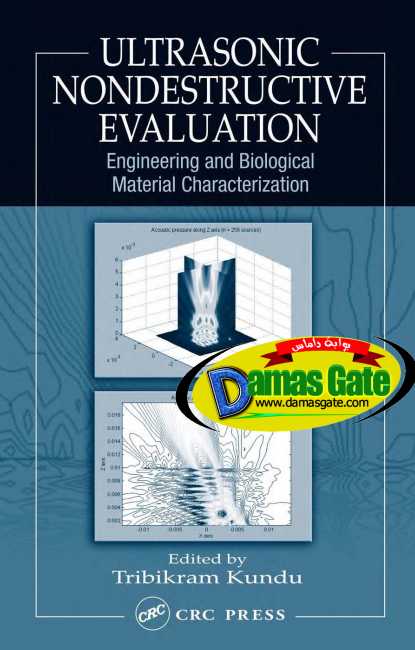Ultrasonic Nondestructive Evaluation; Engineering and Biological Material Characterization

Preface
Today, ultrasonic signal is being used for characterizing (detecting internal
defects in) a variety of engineering structures, such as airplanes, buildings,
nuclear power plants, pressure-vessels, and pipes, for inspecting human
body parts, such as tumors, bones, and unborn fetuses. In spite of the ever
increasing popularity and wide range of the use of this technology by
researchers, medical technicians, factory workers, and engineers, we do not
have any book that covers both the fundamentals and the advanced applications
of this technology. Currently, books either concentrate on fundamental
equation derivations, and thus are too theoretical, or consider only
advanced applications, hoping that the readers have already gained the
theoretical knowledge from another source. One reason that there have been
no books written that cover both fundamental and advanced applications is
there are many advanced applications of ultrasonic nondestructive evaluation
(NDE); it is very difficult for any one author to cover all of those topics.
The advanced topics are mostly covered in conference proceedings where
different authors discuss different applications. Many advanced topics, such
as guided wave technique, nonlinear ultrasonic technique, laser-ultrasonic
technique, and acoustic microscopy, have matured enough to be included in a book.
The purpose of this book is to bridge the gap between the two types of
books available in the market today — the one kind lacks the advanced
analysis and the other kind lacks the fundamentals. This book starts with
the fundamental principles of mechanics; derives the basic equations of the
mechanics of elastic wave propagation; and then, step-by-step, expands its
horizon to cover the state-of-the-art advanced topics of ultrasonic NDE that
are in the forefront of today’s research.
Chapter 1 derives the fundamental equations of mechanics related to ultrasonic
NDE. It is written in such a way that any college graduate of science
or engineering should be able to follow it. A good number of examples and
exercise problems are provided for easier understanding and good comprehension
of the subject. After studying this chapter the readers will be able to follow the
remaining chapters on specialized topics.
Each chapter has been well written by authors who are experts in their
fields and have many years of research experience related to the topics that
they cover. These authors have nicely described many applications of ultrasonic
techniques, from the traditional to the very advanced. All chapters are written
in simple English that is understandable to practitioners, graduate
students, and research scientists.
Download
*